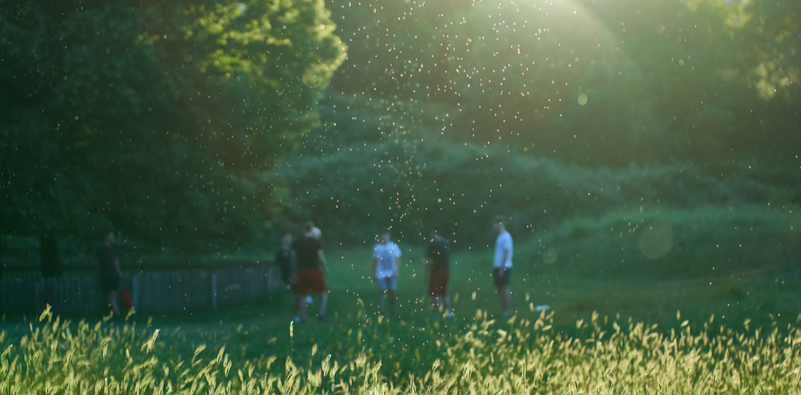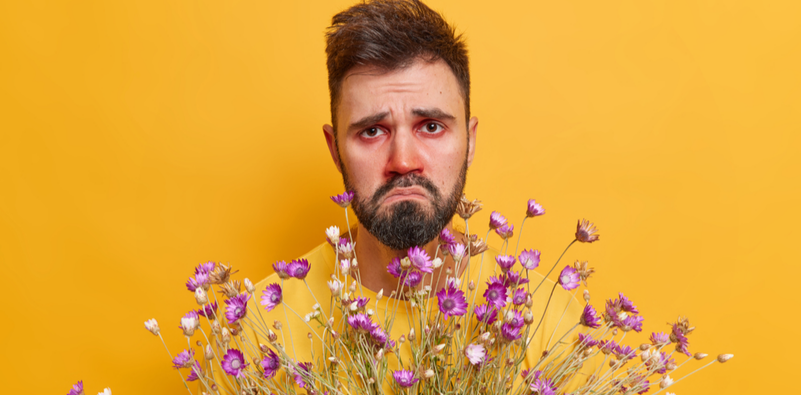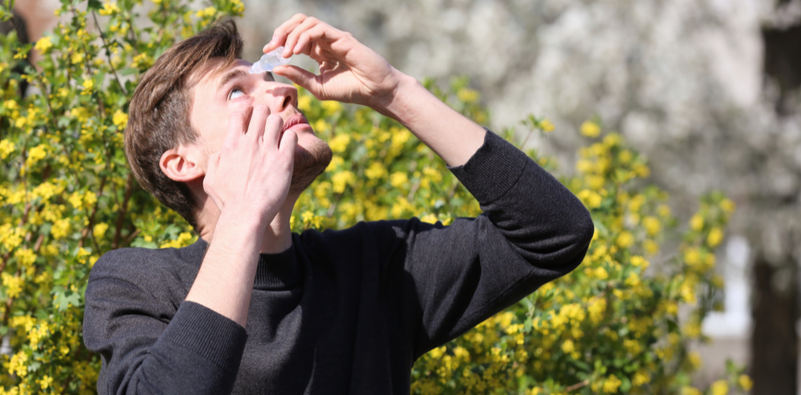How to manage your spring eye allergies
Allergy season is here! As the trees and flowers begin to emerge from their winter slumber, so too do pollen, ragweed, and other allergens. This can lead to puffy eyes, itchiness, and redness. So how do you beat spring and summer eye allergy blues? First, let’s look at some of the causes and symptoms of pollen allergies so you can find the right care solution to bring you relief.
What causes seasonal allergies?

Every year like clockwork, you find yourself rubbing your eyes and sneezing. Your seasonal allergies have returned. Though triggers may differ based on which region of the US you live in, the most common causes of seasonal allergies are pollen from ragweed, flowers, trees, and grass.
When these particles get into your eyes, they trigger an allergic reaction as your immune system tries to keep allergies at bay. The result is a full-scale attack that leaves your eyes feeling irritated.
What eye symptoms should you look out for?
Everyone reacts differently to allergens, but the first signs of a pollen allergy include red, watery, itchy eyes. You might also find your eyes begin to release a mucous discharge as it tries to get rid of the allergen invaders.
How to reduce allergy symptoms

It’s hard to escape allergy season. It seems the moment you step out the door you are faced with allergens from all different directions. Something as simple as someone mowing their lawn or trees coming into bloom can send millions of allergen particles into the air leaving you scrambling for relief.
One of the best things you can do to reduce the effects of pollen allergies is to avoid the outdoors, particularly in the morning and early afternoon. These are the times of day when pollen levels are highest and most likely to cause you discomfort.
For contact lens wearers, it’s probably worth considering switching to glasses. Contact lenses can trap allergens in your eyes leaving them red and irritated. If you don’t want to switch back and forth between glasses and contacts, then consider switching to daily contact lenses which can be disposed of at the end of the day.
You should also consider keeping your windows shut during peak times to stop allergens from entering your home and getting on your furniture and clothes.
If you are having trouble finding relief, a cold compress on your eyes can help reduce swelling and itching. Paired with an oral antihistamine or eye drops, you should experience improved comfort.
What are the best eye drops for allergies?

Eye drops are one of the best ways to get relief from pollen allergy symptoms. Your eye care provider can help you find the right drops for your specific symptoms and eye health issues.
Look for eye drops that have these key features:
- Preservative-free
- Contain an antihistamine
- Steroid eye drops
Contact our eye doctors in Oak Lawn
Remember if your allergy symptoms persist, you should contact our eye doctors in Oak Lawn for an assessment so they can diagnose what’s causing your symptoms and recommend the best solution to you to alleviate them. We don’t think you should suffer in silence! Feel free to book an appointment with our optometrists in Oak Lawn or Orland Park to get help with your seasonal allergies.
